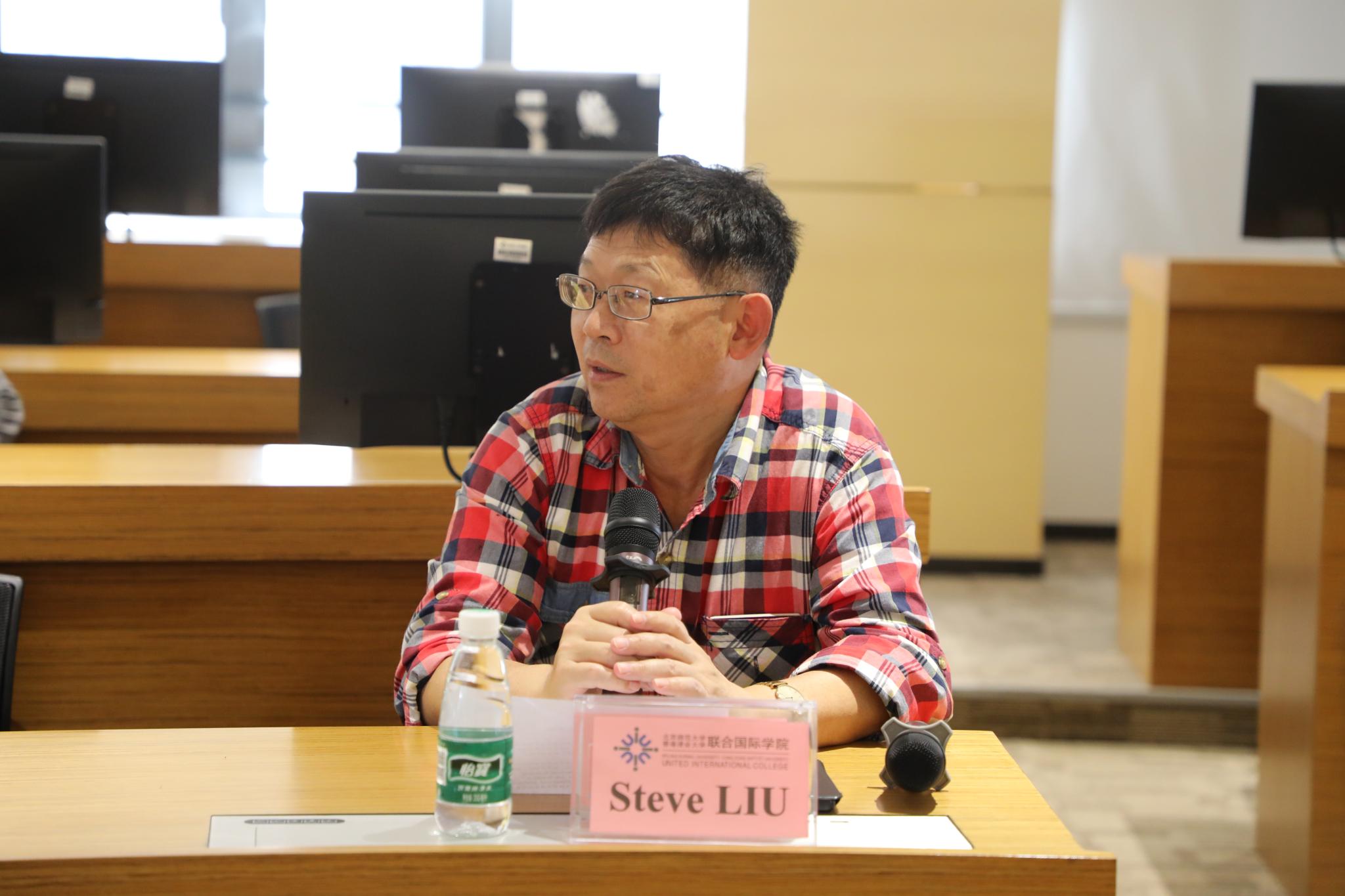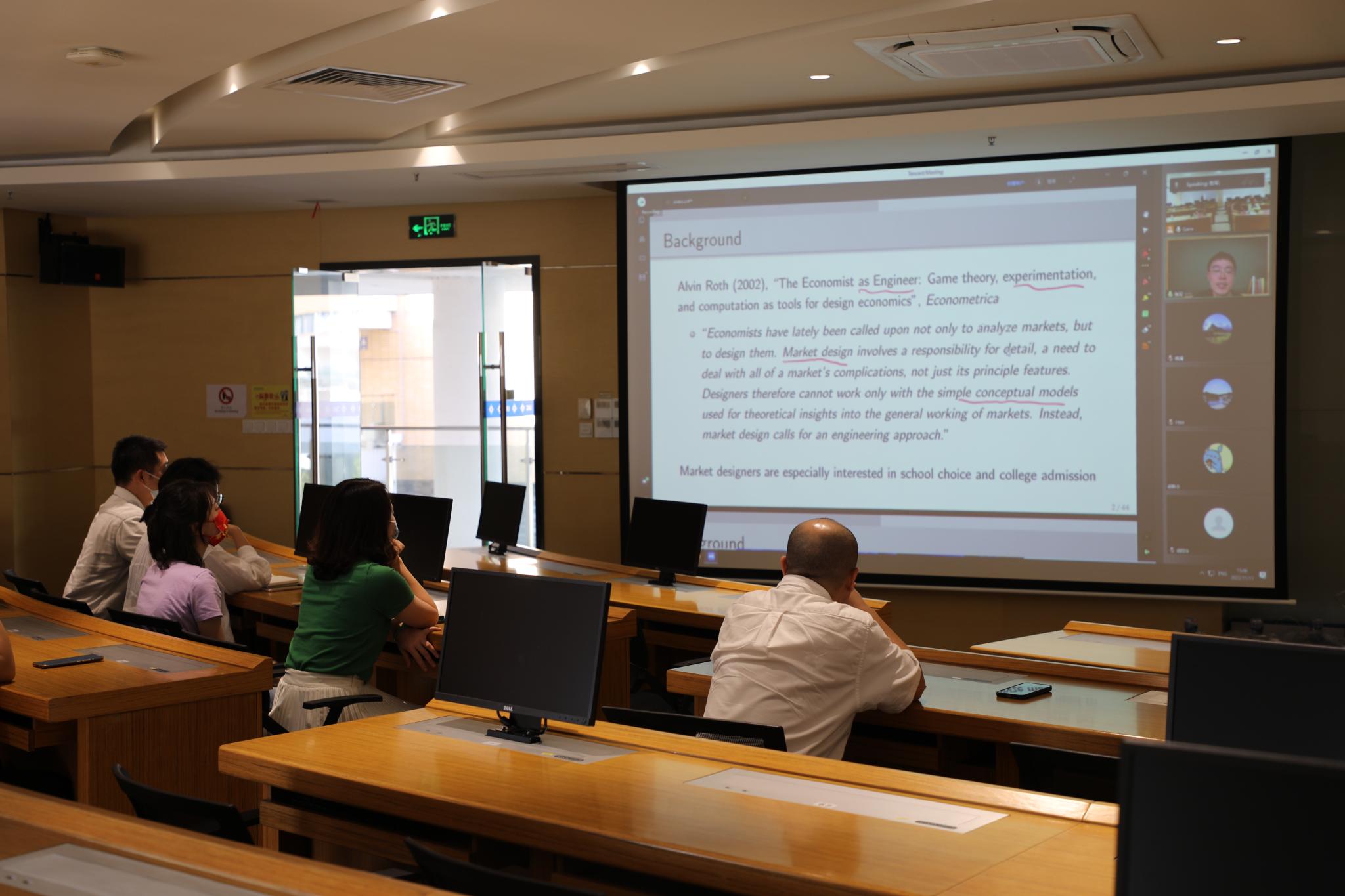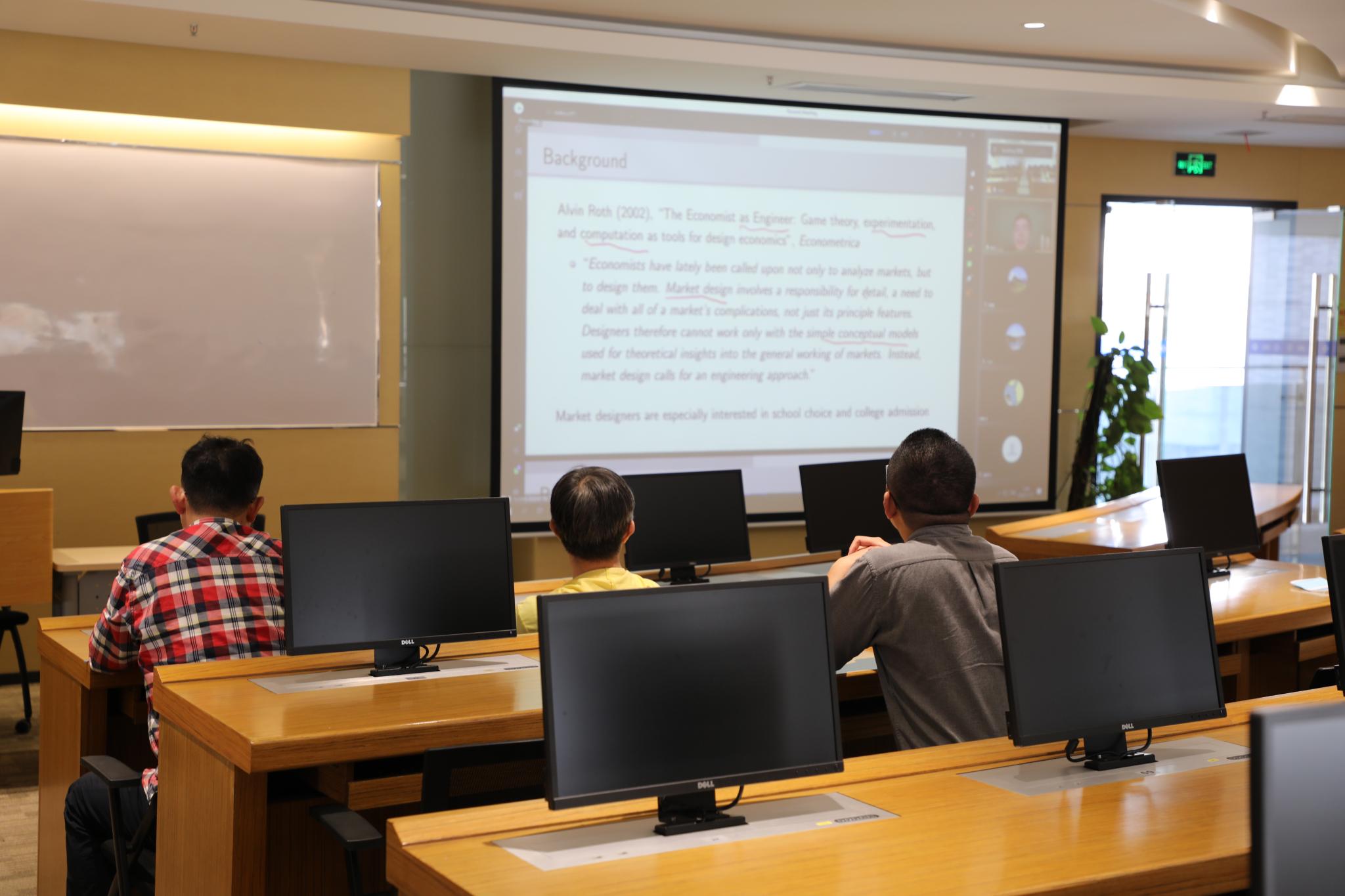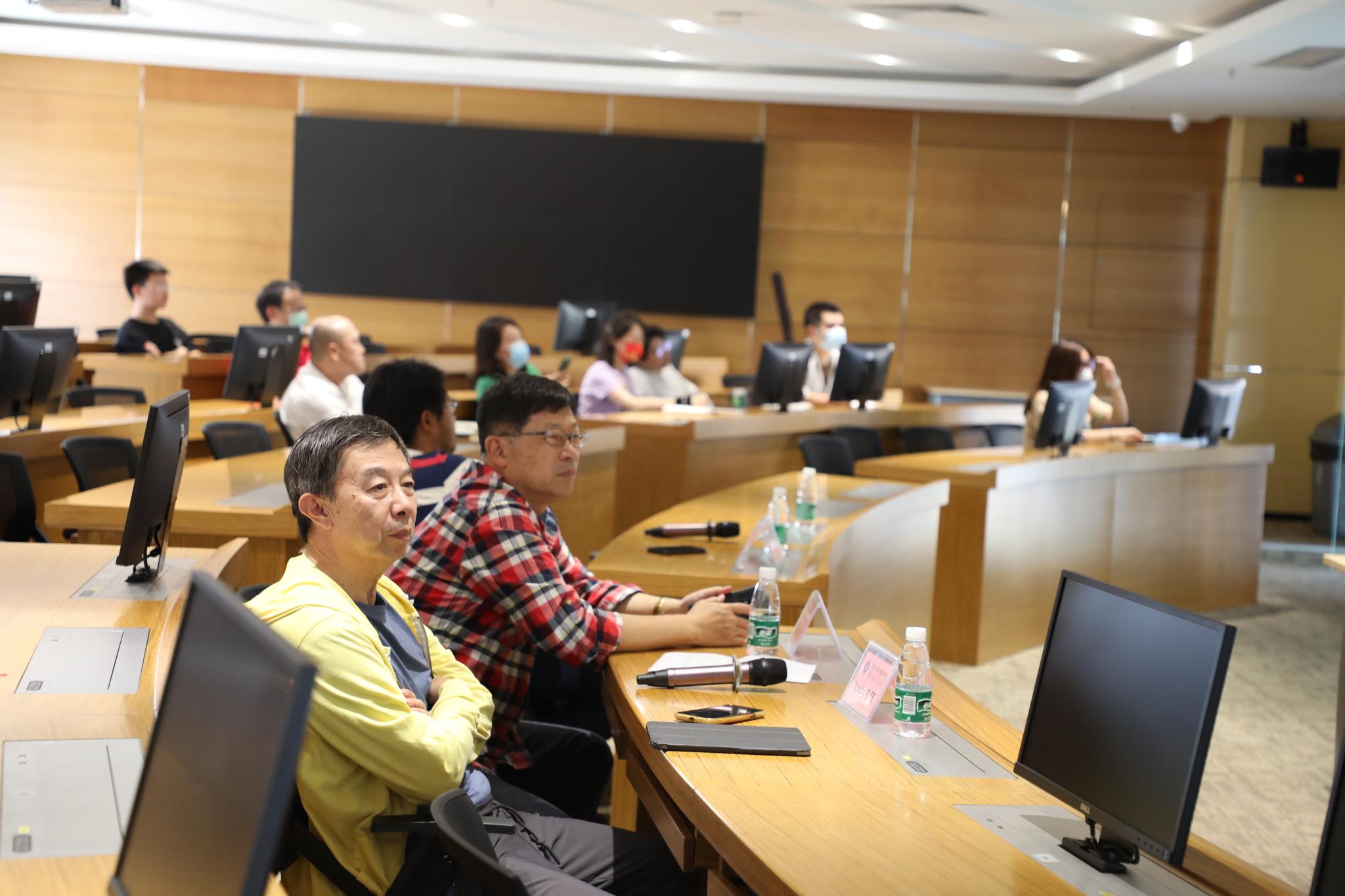
On November 11, at the invitation of the Faculty of Business and Management (FBM), Professor Jun Zhang delivered an online lecture titled "Two-stage Chinese College Admission". The lecture was hosted by Professor Andy.Liu.

Professor Zhang undertook a PhD in Economics at California Institute of Technology which was awarded in 2017. He is Professor of Institute for social and Economic Research at Nanjing Audit University. His research interests include the microeconomics, game theory, and market design.
Professor Zhang first introduced the background, purpose and significance of his research. Professor Zhang documented the two-stage procedure used by Chinese College Admission(CCA), demonstrated the flaws of the two-stage admission procedure,proposed improvement by combining two stage into one stage,and extended his analysis to the new reform in CCA.Combining several examples, Professor Zhang then introduced Chinese parallel mechanism(CPM) and the flaws about inefficiency, he proposed Rectified Parallel Mechanism(RPM) to determine the student’s application for college and major while checking his ranking order list(ROL). As a result, RPM can avoid ROL-based wastefulness and ROL-based justified envy of CPM, and provide students with right incentive regarding major transfer option. With experimental design, compare the impact of CPM and RPM on the three types of students who are lexi-college-major, lexi-major-college or compromise, Professor Zhang verified RPM's improvement in major transfer, efficiency and fairness.Realized a positive correlation between average pay-off and ROL Finally, Professor Zhang discussed the reform of the new reform,listed the individual-major parallel mechanism(IPM) represented by Zhejiang Province, and group-major parallel mechanism(GPM) represented by Shanghai respectively.Through the comparison of experimental results, the advantages of one-step admission mechanism are further verified.
Professor Zhang’s work filled the gap of the research in the two-step admission mechanism for CCA, and explored the possible plan for the future improvement. The atmosphere was lively throughout the discussion, and the audience benefited a lot. The lecture ended successfully with applause.


